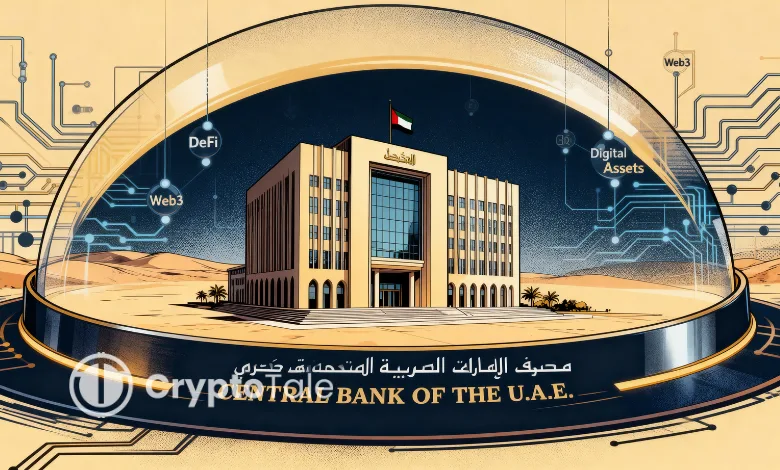UAE’s New Financial Law Brings DeFi and Web3 Under Oversight

- UAE’s new law brings DeFi and Web3 platforms under strict Central Bank oversight.
- New UAE law requires licenses for crypto payments, custody, and financial services.
- DeFi projects face strict enforcement as the UAE expands digital asset regulation.
The UAE has introduced a financial law that establishes a clear regulatory framework for decentralized finance and the wider Web3 sector. The measure reshapes how digital asset platforms operate in the country. The law is already in force and has triggered strong reactions across the DeFi and blockchain sector.
The measure, known as Federal Decree Law No. 6 of 2025, establishes an updated structure for financial services. It also places digital asset activities under the Central Bank’s direct oversight.
It includes crypto payments, exchange services, lending functions, custody solutions, and investment-related operations. The change marks a major shift for firms that have used decentralized systems to avoid regulatory scope.
UAE Law Expands Oversight Across DeFi Platforms
Local crypto lawyer Irina Heaver called the new framework one of the most significant moves seen in the region. The law applies to protocols, DeFi platforms, middleware systems, and infrastructure providers. She noted that the key factor is whether they enable payments, exchange functions, lending activity, custody support, or investment services.
The law took effect on September 16 after publication in the Official Gazette. It amends the broader financial system by linking traditional institutions, insurance players, and digital asset entities under one regulatory umbrella. The transition period ends in September 2026. Projects working in the UAE must align their operations before that point.
Two provisions define the rules. Article 61 lists activities that require a license from the Central Bank. It includes crypto payments and digital stored value. Article 62 states that any person or entity that enables a regulated activity through any means, medium, or technology falls within the Central Bank’s perimeter. This applies even when services are automated through code.
Heaver said the new language ends an argument often used by some DeFi teams. They claimed that they were only offering code and not offering a regulated service. She said decentralization labels no longer grant an exemption. Heaver added that stablecoin support, real-world asset tokenization, decentralized exchange functions, cross-chain bridges, and liquidity routing may require licensing.
Strict Penalties Tighten Pressure on DeFi Operators
Penalties include heavy fines (up to AED 1 billion in certain licensed-entity breaches) and criminal sanctions for unlicensed activity, according to the decree-law and legal briefings. Enforcement has already begun. This places immediate pressure on projects that previously operated without formal oversight.
The law also affects wallet service providers. Kokila Alagh, founder of Karm Legal Consultants, said the change is tied to rules on stored-value services. Her firm has received many questions about whether the law targets non-custodial wallets. These wallets allow users to hold assets without relying on a third party.
Related: UAE Completes First Government Transaction Using Digital Dirham
Alagh said the law does not ban self-custody. It does not bar individuals from using their own wallets. She said the measure expands the oversight applied to companies. If a provider enables payments, transfers, or other regulated services for UAE users, it may fall under licensing requirements.
She added that individuals remain unaffected. Companies must review their activities. She said further guidance from the Central Bank is expected as the implementation phase continues.
Developer Mikko Ohtamaa argued online that the law results in a de facto ban on crypto and self-custodial apps. He also criticized local law firms. He said they misread the law to protect their interests. His comments drew attention across industry channels.
Alagh responded by saying her firm is actively following up with the Central Bank. She said no date has been given for clarification. She emphasized that the law targets service providers rather than personal users.
The UAE has now begun a structured shift that places DeFi and Web3 activity within formal oversight. Projects have one year to adjust their systems. The change sets a new foundation for digital finance in the country.




